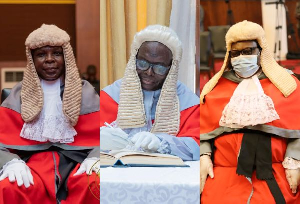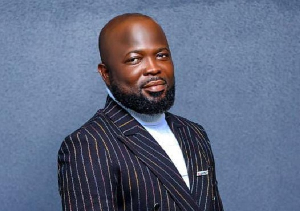Parliament has passed the Value Added Tax (Amendment) Bill after the legislative proposal had gone through a stormy consideration stage.
This was after the NPP Member of Parliament for Sunyani West, Mr. Kwadwo Adjei-Darko, had moved a motion for an amendment to Clause One of the bill stating that the 2.5 per cent increase in the rate of tax from 10 per cent to 12.5 per cent "shall be paid exclusively into the Educational Trust Fund", which is yet to be established.
Mr Adjei-Darko said even though the memorandum to the bill explained that the 2.5 per cent increase is to be put into the Education Trust Fund, the intent is not spelt out in the bill. Clause One of the bill states: "The Value Added Tax Act, 1998 (Act 546) referred to in this Act as the 'principal enactment', is amended in Section Three by the substitution for '10 per cent' of 12.5 percent". Mr Adjei-Darko therefore wanted his amendment to be part of Clause One to leave no doubt as to the intent of the 2.5 per cent increase.
Seconding the amendment motion, NPP-Asante Akyem North, Mr Kwadwo Baah-Wiredu, said if the intent was translated into the bill, it would leave no doubt in the minds of people as to the use to which the 2.5 per cent would be put. However NDC MP for Avenor, Mr Doe Adjaho objected to the amendment, saying it was "unnecessary and mischievous".
He explained that there is a clause in the proposed Educational Trust Fund Bill currently before Parliament, which caters for the intent to which the additional 2.5 per cent rate of tax would be put. Minority Leader, Mr J.H. Mensah, supporting the amendment, said if, indeed, there was any such intention; it should be translated into the VAT amendment bill itself.
A Deputy Minister of Finance, Mr Moses Asaga, called for the rejection of the amendment, saying a statutory obligation captures the intention of the 2.5 per cent tax. Therefore, he added, its use was not going to be at the discretion of the Ministry of Finance. The Minority Spokesman on Mines and Energy, Mr Albert Kan-Dapaah, said if the amendment was not acceptable to the Majority Group, then the funds that would accrue from the 2.5 per cent tax would not be used for the intended purpose.
NDC MP-Ketu North, Mr Modestus Ahiable, said though the amendment looked harmless, it would be setting a bad precedent because apart from introducing rigidity into the law, it would create doubt as to the use of the money collected.
The Minority spokesman on constitutional matters, Nana Akufo Addo said all that the amendment sought to do was that monies realized from the 2.5 per cent VAT increase would go into a specific fund for a specific purpose of funding education, quoting sections of Article 175 and 176 (2) (a) of the constitution to support his assertion. He added that the Minority would have opposed the 2.5 per cent increase had it not been meant to support education.
The Minister of Finance, Mr Kwame Peprah, said the amendment was not necessary because the purpose of the 2.5 percent additional VAT was captured under the Educational Trust Fund Bill. After the debate on the amendment motion, Mr Kenneth Dzirasah, First Deputy Speaker, who was in the Chair, put the question and the amendment was lost by 107 votes against and 44 in favor.
Click to view details



Business News of Monday, 3 April 2000
Source: JoyFM
















